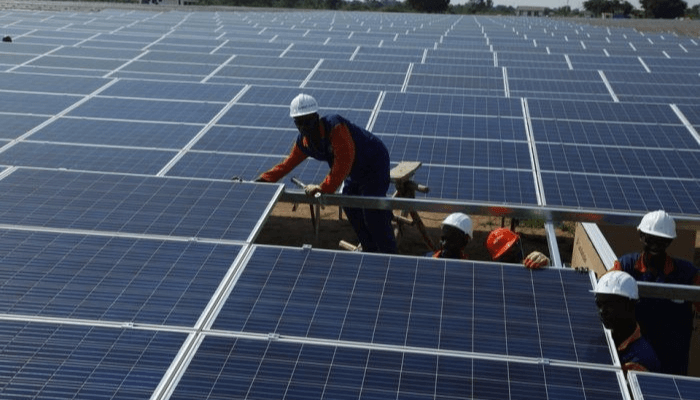Working remotely in Nigeria, Africa’s fourth-largest economy, has become increasingly challenging as workers grapple with rising costs of unstable electricity and soaring petrol prices.
These mounting expenses are pushing remote workers to explore alternate energy sources to power their devices and remain productive.
“I used to spend about N20,000 monthly on fuel for my generator, but since the subsidy removal, my costs have more than doubled to N50,000. So, I had to buy solar,” said Tola Bamidele, a freelance graphic designer in Lagos.
Read also: 5 remote jobs that pay up to $75,000 without experience
Fuel price increase has been one of the most pressing challenges for Nigerians since July 2023 when the government removed fuel subsidy, leading to a spike in petrol costs.
Petrol prices have surged from N165 per litre to over N998 in Lagos and N1,030 in Abuja. In addition to fuel hikes, electricity tariffs have also increased. According to the Nigerian Electricity Regulatory Commission (NERC), electricity tariffs rose by more than 40 percent in 2023, from an average of N30.23 per kilowatt-hour (kWh) in 2022 to over N45.93 per kWh.
It has since increased to over N200 per kWh for some Nigerians in 2024. Despite these increases, frequent power outages continue to plague the country, exacerbating the challenges for remote workers.
A considerable number of people either work entirely remotely or alternate between office days and work from home. In 2022, statistics revealed that around 18 percent of people globally worked remotely full-time. This type of work largely depends on frequent power and reliable internet.
Taiwo Aina, a software developer, said, “Fuel has been my biggest spend this year. It almost feels like I spend all the money I make on fuel, and it is not even ending soon. Despite having my money, I would still spend long hours of productive time in queues. As a result, I had to explore solar.”
Read also: Certifications are accepted standard in growing remote job market Asamani
Deranti Adeolu, another remote worker frustrated by constant power cuts and high petrol costs, often searches for places to charge her devices. “Many times, I have had to leave the house to find where to power my gadgets for work,” she said. She and Aina are considering switching to solar energy.
Despite its many advantages, the upfront investment in solar installations remains a challenge for many Nigerians. This financial strain is compounded by double-digit inflation, which has eroded workers’ purchasing income.
However, the long-term savings and energy stability make it a worthwhile investment for Nigeria’s growing remote workforce.
Following the fuel subsidy removal in 2023, SunFi, a solar financing platform, tweeted: “The future of work is evolving as fuel subsidy is removed. Employers are embracing remote/hybrid work setups, but remote workers are also facing challenges in fueling their generators. We know solar can be expensive, but it can make a difference.”
Solar costs remain a challenge
Victor, a software engineer, noted that he has been trying to raise money to install solar panels in his flat.
He said, “I have been trying to save for a solar panel. Sometimes, it is not even encouraging because a friend gathered money to afford a solar panel, and his batteries were stolen before daybreak.”
Ekene Uche, a Lagos-based graphic designer, initially used solar to supplement his energy needs. However, his 3-kW solar system now powers his home office and basic appliances, keeping him connected during frequent power outages. “I haven’t bought petrol in months, and my power bill is significantly lower,” he stated.
Gabriel Adeleke, a data entry specialist, who now relies on solar energy, noted that solar panels ranged from N50,000 to N150,0000, while solar inverters were between N300,000 and N1,500,000. “The installation cost of a solar power system in Nigeria varies based on the system’s size. A 1kW system may cost roughly N500,000, while a 5kW system can amount to around N2,500,000,” he explained.
Read also: Companies in Germany, Saudi Arabia others need remote IT specialists
Aside from solar, some workers are turning to backup battery systems, typically lithium-ion, to store excess electricity and provide power during outages. Stella Adeola, a freelance writer in Ogun State, emphasised how essential batteries have become. “With the frequent blackouts, I needed something reliable,” Stella explained. “I couldn’t risk missing deadlines because my generator failed or I ran out of fuel.”
While more remote workers are gradually shifting to solar, costs will remain an obstacle. To address this issue, several companies are offering financing plans to help workers make the switch.
“Customers would always ask us if there was a way for them to pay for the solar systems in installments… The challenge customers face with solar providers is that they want solutions they can pay small for,” Rotimi Thomas, chief executive officer of SunFi, said in 2023.
